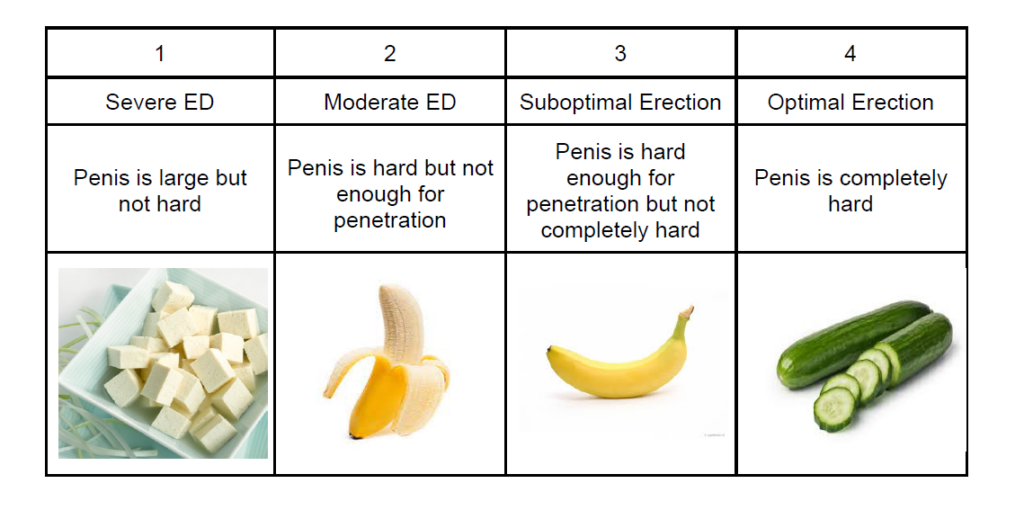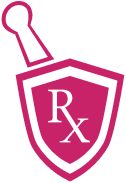Erectile dysfunction (ED) is the inability to achieve or maintain an erection that is sufficient
for intercourse. This condition is seen exclusively in men (duh!) and affects roughly 1 in
every 3 men based on studies. It has widely been considered the doom of all men,
especially aged men (imagine your mind & heart pumping with passion on a Saturday night
just to find out your little friend is still sound asleep). The condition can be caused by
vascular, neurological, hormonal and even psychological factors, thus making it a complex
issue to manage.
Erection Hardness Score (EHS)

Causes of ED
It is extremely difficult to pinpoint the source of the problem since there are a lot of
contributing factors to ED. The sexual health of a man is often seen as a barometer of his
overall health, especially cardiovascular health. These are the few common causes of ED:
● Trauma
● Obesity
● Stress
● Hormonal disorder (thyroid, testosterone, etc)
● Metabolic disorder (hypertension, diabetes, etc)
● Smoking
● Excessive alcohol use
● Prescription drug use (antihypertensives, antidepressants, etc)
● Recreational drug use
Management of ED
- Sildenafil
Ever since Pfizer launched Viagra in 1998, it has been the blockbuster drug to treat ED till
now. It inhibits an enzyme called PDE-5 to enhance the vasodilatory effects of endogenous
nitric oxide, leading to better and longer erections. Many pharmaceutical companies have
since released their own versions of PDE-5 inhibitors, but this magical blue pill still remains
undefeated in terms of its legendary status and ability to rake in massive profits.
Sildenafil is usually taken orally, at least half an hour before intercourse. There is a novel
delivery method for sildenafil which is in the form of Rapid Dissolving Tablets (RDT). The
RDT is placed under the tongue where the drug will be absorbed directly into the
bloodstream. RDT has several advantages over the conventional oral dosage form, such as
faster onset of action and is also unaffected by food intake. - L-arginine
L-arginine is a type of amino acid that regulates blood flow. In the body, it is converted into
nitric oxide by the kidneys. Nitric oxide is a vasodilator, it dilates the blood vessels, in this
case in the penile tissues so that a desirable erection can be obtained. The usual dose is
500mg to 1500mg, taken daily. Since it works in a similar fashion as other prescription ED
drugs and also nitroglycerin, it is not recommended to take those at the same time to prevent
blood pressure from falling dangerously low. - Ginseng
Dubbed the “King of Herbs”, it is a famous herb that is often linked to the improvement of
male sexual health. Its use can be traced back a few centuries ago and across multiple
different cultures. Numerous studies have been conducted to verify the viability of the herb
as a nutritional supplement. Today, sophisticated extraction technology and mass-scale
production allows us to get ginseng supplements that are both effective and at a reasonable
price.
The “Ginseng” title has also been extended to include other worthy plants and herbs, despite
not originating from the same family tree. The renowned “Malaysian Ginseng” Tongkat Ali
and “Peruvian Ginseng” Maca Root are often used in a similar fashion and can easily be
seen in nutritional supplements that are used to boost male virility and fertility. - Lifestyle changes
Even without consuming prescription drugs and supplements, a change in your daily lifestyle habits could go a long way in managing ED. First of all, cut out on smoking. Smoking causes blood vessels to harden and become less elastic. When they are unable to dilate properly, the ability to achieve an optimal erection becomes severely affected. Next, hit the gym and start losing some weight. Being overweight affects your body’s endocrine and cardiovascular systems, both closely linked with sexual health. Last but not least, having a balanced diet complete with all the macro and micronutrients your body needs is also extremely important.


